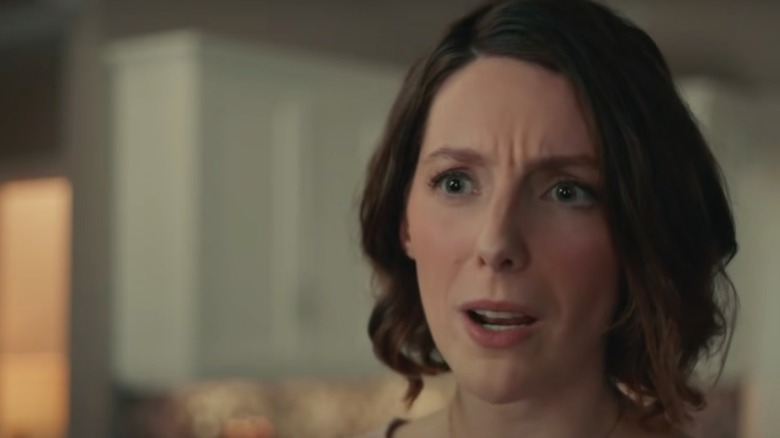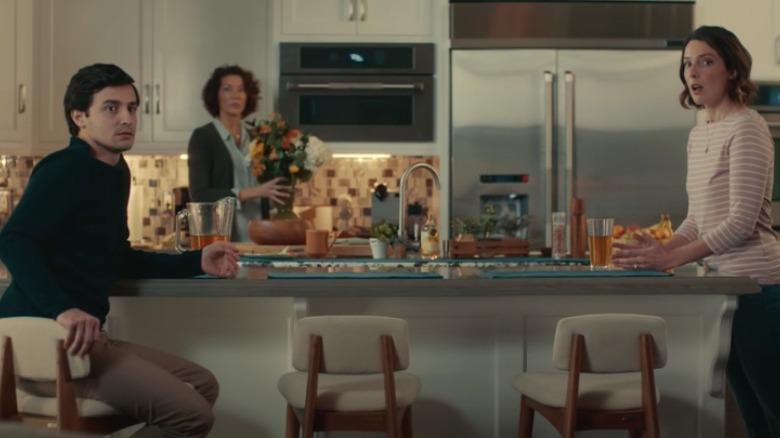Why The Eargo Commercial Has The Internet In Stitches
Move over, Match.com, a new Eargo commercial has captured the internet's attention, and it's all Twitter can talk about. "Aye that eargo commercial wild as hell lol," wrote one enthusiast on the social media platform (via Twitter). "No matter how many times I see that @eargo commercial, I laugh," tweeted another. "Really would like the people who made the @Eargo commercial to make every commercial ever," gushed another on Twitter. We'd go on, but you get the idea, right? Twitter hasn't been so hyped about something since Taylor Swift announced her re-recording project in late June.
The commercial is part Eargo's first national brand campaign according to Ad Age. Nope, unlike Match.com's satan commercials, Ryan Reynolds and his ad agency are not behind these 47 seconds of commercial brilliance. And, while it's hard to say if the company's succeeded in selling nay hearing aids, they've clearly scratched an itch. Have you watched the commercial already? Here's what all the fuss is about.
Breaking down Eargo's new hearing aid commercial
Given, Eargo's new hearing aid commercial isn't intense, complex, or Oscar-worthy. This is no "Citizen Kane"-wannabe. Plotline-wise the commercial is much closer to Emma Roberts' 2020 rom-com "Holidate," or perhaps "Meet The Parents." It goes something like this: woman (wearing a striped Old Navy-style shirt) takes man (with perfectly coiffed hair and chinos) to have dinner with the parents. While mom is putting flowers in a vase, and mom, daughter, and daughter's partner are sipping what looks like a very tame tea, she whispers to him "did you bring the condoms?"
Spicy, right? He doesn't hear her and asks for clarification. Dad (sitting in the living room reading) does. He says, "condoms, Charlie, she wants to know if you brought any condoms!" Are you laughing or cringing? Either way, there's good news. Even if you're not a fan of the commercial's humor, you can be glad it exists. Reuters says that it — and others like it — are a sign that somber, sincere COVID-19-era advertisements are behind us. We may finally be turning the corner.

